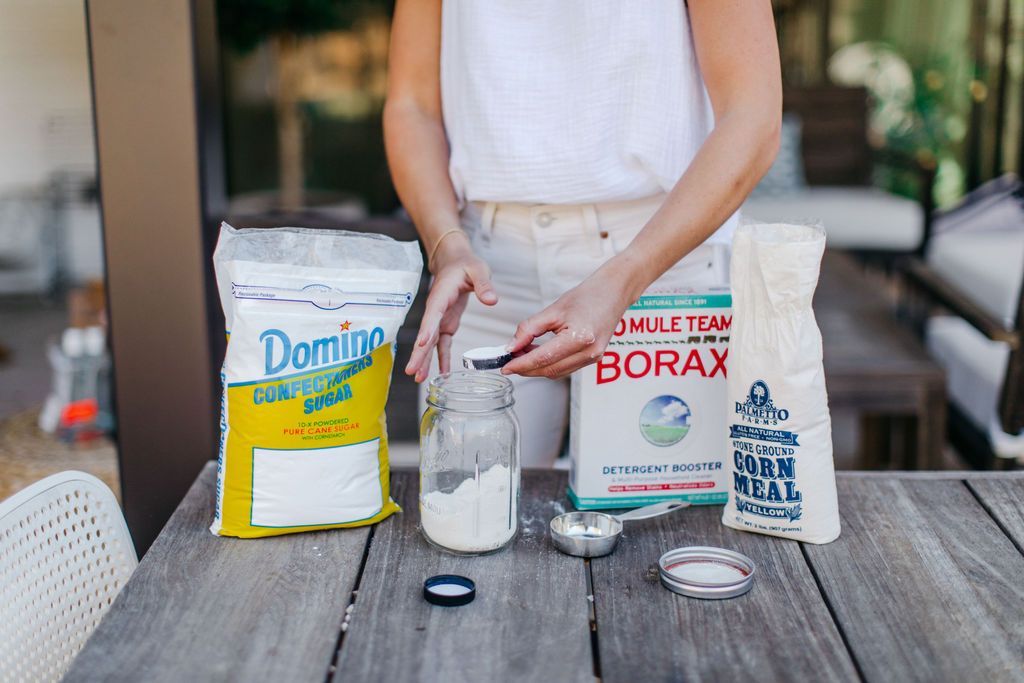Natural Ways to Keep Bugs Out Of Your Garden & Yard

Designing a bug-resistant yard or garden means discouraging the critters from becoming residents without using harsh chemicals and pesticides.
Pesticides and herbicides are among the most hazardous products used in the yard and home. The suffix "-cide" on a label indicates something designed to kill. Pesticides, herbicides, biocides, fungicides, and mildewcides are all intended to eliminate specific pests.
Using these chemicals in your yard can create a toxic environment that extends beyond your immediate surroundings. Spraying your yard with toxic pesticides not only harms the soil and plants but also introduces these harmful substances into the air you breathe and the surfaces you touch.
There are multiple risks associated with using pesticides in your yard. Chronic, low-dose exposure can harm the nervous, respiratory, and reproductive systems.
Pesticide exposure has also been linked to conditions such as ADD/ADHD, Alzheimer’s, asthma, ALS, MS, cancer, Parkinson’s disease, endocrine disruption, thyroid disruption, diabetes, brain damage in children, weight gain, reduced immunity, depression, disrupt and kill healthy bowel flora and more.
The good news is, eliminating the use of toxic pesticides in your yard can significantly improve the outdoor air quality and reduce the strain on your body's detox processes, allowing more energy for regeneration and repair!
17 Natural Way to Get Rid of Bugs
By choosing safer alternatives for pest control in your yard, you protect your health and contribute to a healthier environment. Here are 17 ways you can naturally protect your space.
Related Read: 5 Natural Pesticides That Really Work
1. Feed the Soil
Soil health is inextricably linked and forms the foundation of the state of our yards, gardens, and food supply. Nutrient-depleted soil equals nutrient-depleted plants. Nutrient-depleted plants equal low yields, dull, disease, and insect-susceptible plants. Nutrient-deficient plants equal nutrient-deficient people. Nutrient-deficient people also have weakened defenses against viruses and bacteria and may be more susceptible to insect bites.
2. Clean Your Yard
Keep your backyard clean regularly and remove all debris, fallen leaves, or sources of stagnating water. Not only do these pose a health threat from mosquitoes, but they will also attract other harmful bugs.
3. Eliminate Stagnant Water
To keep mosquitoes at bay and stop them from coming back, one of the best things you can do is get rid of or regularly clean any standing water in your yard. It doesn’t matter if it’s a puddle, bird bath, bucket, tree stump, or kiddie pool—any container with water can turn into a mosquito breeding ground. Ensure water storage containers, like cisterns and rain barrels, are tightly sealed so mosquitoes can’t get in to lay their eggs.
4. Encourage Natural Predators
Attract beneficial predators that eat pests. These include birds, bats, ladybugs, lacewings, and even praying mantises. Even just putting up a birdhouse or bat box and having a garden that is friendly to these predators can make a difference.
- Bat Houses: Bat houses provide a safe roosting place. Bats are among the most significant predators of many nocturnal insects, including agricultural pests, flies, moths, beetles, and mosquitoes. By eating large quantities of these insects, bats help reduce the number of pests.
- Purple Martin Houses: Purple Martin’s are voracious mosquito eaters! On average, a single purple martin can consume hundreds of mosquitoes and other flying insects daily during the breeding season.
5. Use Diatomaceous Earth
This naturally occurring, powdery substance can be spread around the yard to eliminate most kinds of insects, including ants, fleas, and ticks, without harming plants or animals.
6. Ensure Proper Lighting
Insects are generally attracted to standard outdoor lights. Use yellow or amber LED lights in outdoor areas to help mitigate the number of insects attracted to your yard.
7. Maintain Short Grass
Tall grass harbors pests such as ticks. By maintaining a short length, you might prevent such invasions.
8. Get Rid of Ant Beds
To use as an all-purpose spray for ant beds, pour boiling water over the ant bed or mix equal parts vinegar and water plus 2 to 3 drops of Branch Basics Concentrate and pour over the ant bed. Both methods will kill vegetation or grass below the ant bed.
9. Utilize Cedar Mulch
You can place cedar mulch in your garden beds; this may help repel certain pests like ticks and fleas from the cedar’s natural oils, acting as a deterrent.
10. Install Mosquito Nets or Screens
Establish mosquito screening for the outdoor seating sections you want to safeguard on your patios and decks to form a tangible barrier that will exclude flying insects.
11. Insect-Repellent Plants
If you didn't know, some plants repel insects. To that end, consider adding pest-repellent items, such as lavender, citronella, marigolds, basil, mint, and lemongrass, throughout your landscape and patio areas to deter pests.
12. Try Companion Planting
Introduce specific species into your garden as neighbors that mutually keep the pests away. For example, planting the marigolds between the vegetables would deter harmful nematodes and other enemies in the garden.
13. Introduce Carnivorous Plants
- Pitcher plants can be effective at catching and digesting insects. These carnivorous plants have pitcher-shaped leaves that act as traps for prey, like flies and wasps. The bottom of the pitcher is filled with a digestive fluid that drowns and breaks down the insects' proteins. The plant then absorbs nutrients from the decomposing prey through glands on the inner wall of the pitcher. This allows pitcher plants to survive in habitats that are poor in nutrients. Pitcher Plants require consistent moisture and high humidity in order to thrive. If they experience periods of dry soil or low humidity, their pitchers will die off to preserve energy.
- Venus Fly Traps are known for their fly-catching abilities. However, it has been discovered that they are also natural predators of mosquitoes. Studies show that the Venus flytrap has smaller mini-traps that respond to the smaller forces generated by the lightweight mosquito.
14. Try Solutions from the Kitchen
- Cinnamon: Cinnamon can effectively repel pests like ants, mice, spiders, and fungus gnats. To keep fungus gnats out of your garden, sprinkle ground cinnamon on your garden beds, as the scent can disrupt their reproductive cycle. For areas outside where you want to deter ants and other pests, grate a cinnamon stick and sprinkle the bits around. If you're eating outside, place cinnamon sticks near your food to ward off fruit flies—they also work well in fruit bowls.
- Basil: can help protect against tomato hookworm infestations. Basil can also help deter mosquitos, flies, whiteflies, asparagus beetles, and carrot flies. Basil leaf extract can be made by chopping and pressing leaves in a mortar & pestle and soaking leaves in water overnight. After straining the basil and water through a strainer, take the liquid and add to a large sprayer along with 1 tsp. Branch Basics Concentrate.
- Organic Coffee: Burning organic & pesticide-free coffee grounds offer an effective, non-toxic alternative. The strong scent and smoldering effect repel mosquitoes and other insects like wasps and bees. To use, dry your used coffee grounds (you can even dry them in your oven at home (oven set to 175 to 200 °F (79 to 93 °C) and let them dry out for 1 to 2 hours). After they are dry, add them to a heat-safe bow, shaped like a small hill. Make sure the coffee grounds are really dry; otherwise, they will not burn efficiently. Often, adding an organic cotton wick will ensure the hill stays lit. Burn them like incense in a safe outdoor spot near you. Adding fresh bay leaves or cloves can enhance the repellent effect.
- Garlic-Based Products: Garlic, in pellet, spray, and oil forms, is effective against many pests and insects. Allium sativum is a potent pest control agent due to its numerous biochemical properties and interactions with insects' physiologies. The pungent garlic odor repels insects, stopping them from laying eggs and feeding on treated plants. This repelling property emanates from the volatile sulfur compounds in garlic.
15. Use Essential Oil Sprays
Mix water with a few drops of essential oils known for repelling insects (such as citronella, peppermint, cedar, catnip, patchouli, lemongrass, lavender, or tea tree oil) and spray around the yard, especially where you spend a lot of time. We recommend wild-crafted or organic essential oils processed without solvents. Store them in an outbuilding, detached garage, or, if needed, in a sealed container in the attached garage or home.
16. Use Neem Oil
Neem oil, a natural pesticide, works best on various pests. Mix it with water, dilute, and spray on plants; it protects them against insects but does not harm beneficial bugs.
17. Join Non-Toxic Neighborhoods
This is an organization that offers resources to help make your city, public parks, and surrounding areas pesticide-free. Non-Toxic Neighborhoods also focuses on organic and regenerative management training at all levels: land managers, city/county staff, landscape contractors, and school district staff.
They also do soil testing, draft organic and regenerative policies, pilot park programs to show the benefits of organic and regenerative land management, and provide alternatives to glyphosate and best practices for organic and regenerative land management.
Toss The Toxins
These affable, natural practices included in your yard care will help you say, "See ya later!" to those bugs without harsh chemicals. You'll be bug-free, all right, but you'll also grow a more vigorous ecosystem, friendly to good bugs and wildlife—everybody wins! — for good health and the environment.
For further reading on how to make your whole home and yard pesticide-free, check out our guide on replacing toxic pesticides! Get started with our Branch Basics starter kit today!

Categories

Marilee Nelson
Marilee Nelson is an Environmental Toxins expert who has spent nearly 30 years advocating for the chemically-sensitive and chronically-ill. She is a Board Certified Nutritionist, Certified Bau-Biologist and Bau-Biology Inspector and specializes in Food As Medicine. She has helped thousands of families and individuals identify, heal and recover from toxic exposures and is on a mission to revolutionize the way American families view their health.








